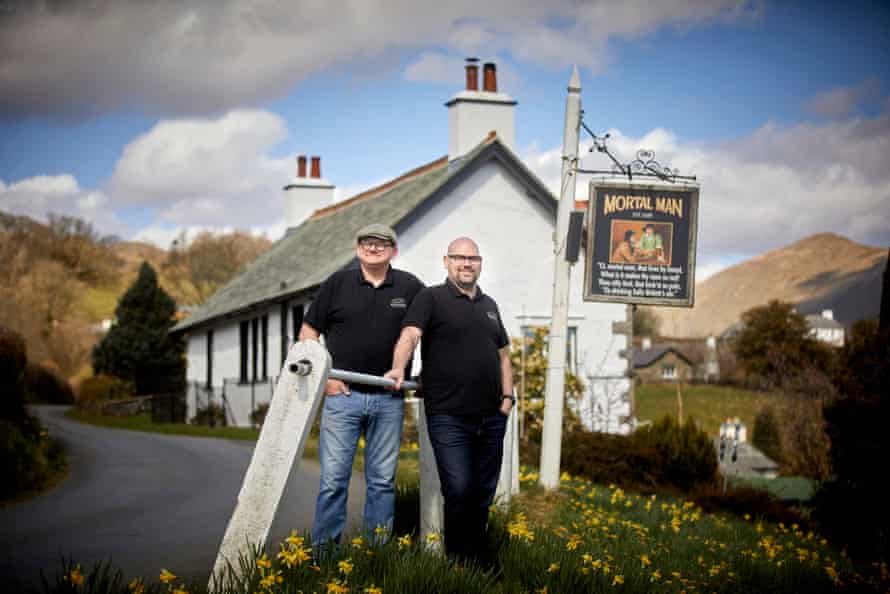The lockdowns of the last year are estimated to have lost Cumbria £2bn in tourism revenue. But while the Lake District welcomes the return of overnight visitors from Monday for what it expects to be its “busiest summer ever”, there is a certain nervousness about what awaits.
Last summer saw “an awful lot chaos”, admits local MP, Tim Farron. Those responsible were “a small minority, but still a lot of people” who decided to camp, park, BBQ and litter wherever they fancied. There was a “rave” halfway up Catbells, and earlier this year a Mountain Rescue volunteer was left with spinal injuries after falling trying to reach two lockdown breakers camping above the Kirkstall Pass.
Part of it was ignorance, believes Farron, who represents Westmorland and Lonsdale in south Lakeland. “Cumbria Tourism did this survey and discovered that 60% of the visitors to the Lakes last June had never been before, so in some ways, you can kind of understand why things that might be blindingly obvious aren’t blindingly obvious to these people: dogs on leads, take your rubbish home with you and so on.
“But people were also saying things that were really eye-opening in terms of their perspective, like: ‘Well, it’s a national park. I own this.’ It was as if they thought national parks were nationalised pieces of land and therefore ‘if I leave my crap here it’s fine and if I don’t leave my crap then somebody else will be out of a job.’”
This sense of entitlement among new visitors wasn’t just a Lake District problem. The chief executive of Snowdonia national park told the Guardian of a visitor last year phoning up the tourism office and asking to reserve a parking space next to Snowdon.
Adam Stephenson and his partner Terry Knipe run Herdwick Cottages. They have 89 properties across Cumbria and the Yorkshire Dales, from tiny shepherd’s huts and glamping pods to 20-bed former hotels, and are anticipating a bumper season. “We are looking forward to welcoming everyone back, mostly the ones that don’t normally head to the Lake District – that have never seen a cow or sheep in the flesh, from the likes of London,” said Knipe.
New visitors can pose extra challenges, conceded Stephenson. “How do you put this diplomatically? In the last lockdown when people couldn’t go abroad, some of the guests we had would normally go to the likes of Benidorm – resorts, that sort of thing.
“We had a lot more issues with people who were not looking after the property as well as normally. We had an instance where somebody booked a property but then invited all their friends to stay in a camper van in the driveway and use all the facilities… We had quite a few more complaints when they were challenged about these things and guests were getting quite shirty with us.”

But the couple are excited about the season ahead, relieved that their guests will not only be supporting them but also local businesses. Many have had no grants and minimal government help, said Knipe: “The brewers, coffee makers, visitor centres, tour guides, cleaning companies, laundry companies. taxi drivers, pubs, restaurants and farmers’ markets.”
Farron is optimistic that this summer will run more smoothly. The national park is better prepared – the toilets will be open and there will be dozens of new “pop-up” campsites to stop wild camping. “Most people understand it’s a national park and not a festival ground,” said Richard Leafe, chief executive of Lake District National Park, “But we hope more formalised campsites will help.”
He encourages visitors to plan ahead, arriving by public transport if possible, for what he thinks will be “our busiest summer ever.” Consider exploring the lesser known bits of the park instead of just heading straight for Windermere, he suggested: “The Lake District is over 900sq miles – there is so much to see.”





